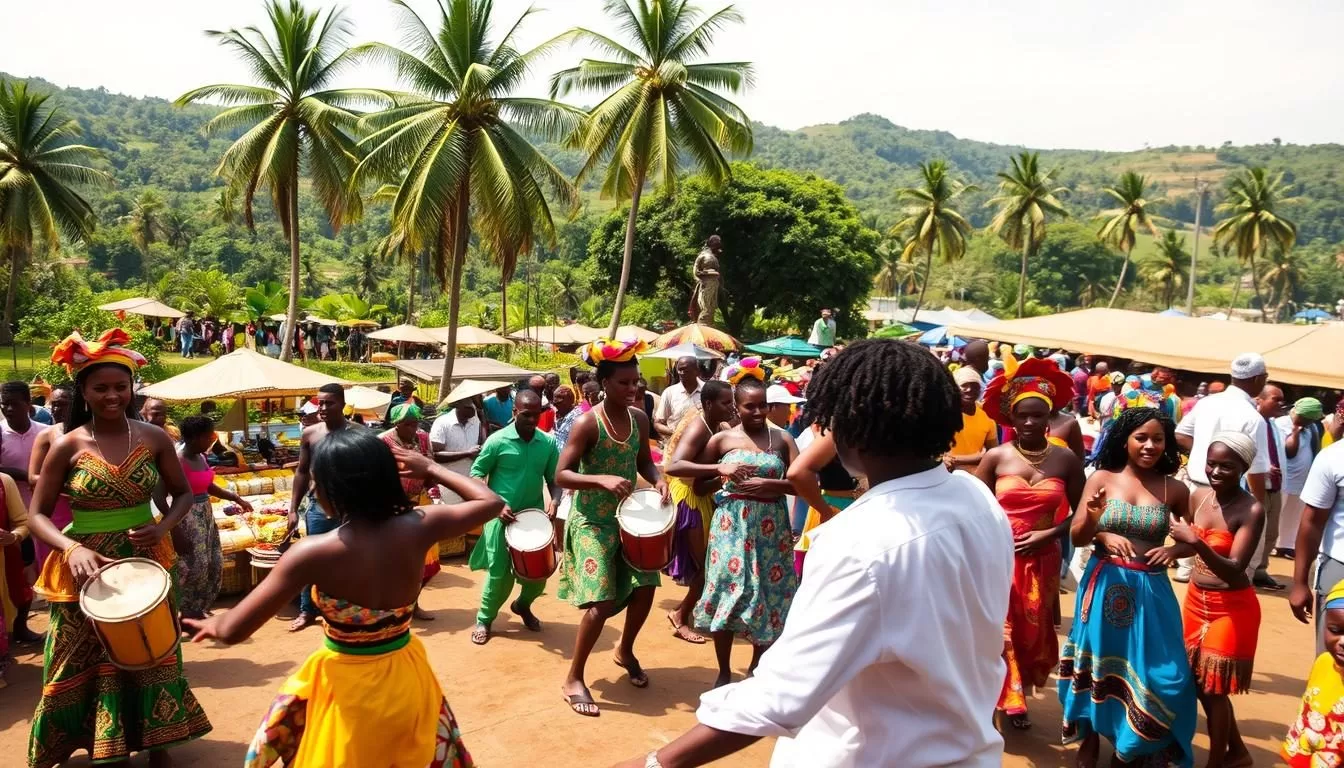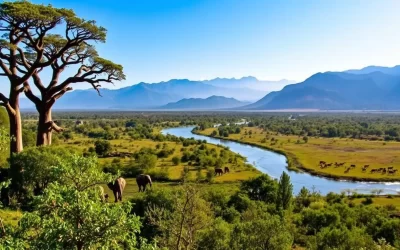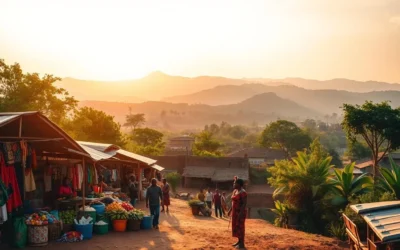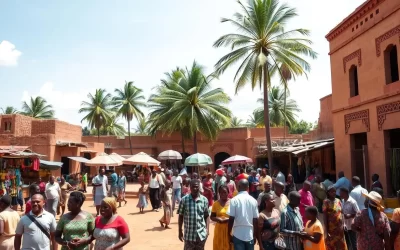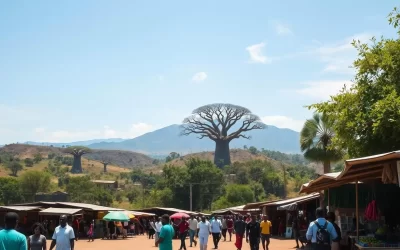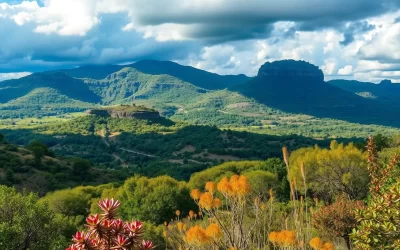✓ Accommodations✓ Flights✓ Rental Cars✓ Tours & Activities
Are you ready to immerse yourself in the vibrant culture of Togo? The country offers a diverse tapestry of cultural festivals that showcase its rich heritage and traditions. With 37 tribal groups, Togo’s celebrations are as diverse as they are fascinating.
Timing your visit around these festivals can significantly enhance your travel experience. Each festival tells a unique story about the country’s history, spiritual beliefs, and agricultural practices, providing a deeper understanding of Togolese culture and community values.
By experiencing these festivals firsthand, you can connect with locals and participate in authentic cultural exchanges, making your visit to Togo truly unforgettable.
Discover Togo’s Rich Cultural Heritage Through Festivals
Togo’s cultural landscape is vividly brought to life through its numerous festivals, offering a unique glimpse into the country’s heritage. These events are not just entertaining; they are a window into the traditions, history, and values of the Togolese people.
The Significance of Festivals in Togolese Culture
Festivals play a crucial role in Togolese culture, serving as a bridge between the past and the present. They are a time for celebration, reflection, and community bonding. The significance of these festivals lies in their ability to preserve cultural heritage while promoting unity and cultural identity.
Best Times of Year to Experience Togolese Festivals
The best time to experience Togolese festivals is during the dry season, from November to March, when the weather is most favorable for outdoor events. Harvest festivals typically occur in August and September, while historical commemorations are held on fixed dates throughout the year. To make the most of your visit, it’s advisable to plan ahead, as some festivals follow lunar calendars and their dates may vary. 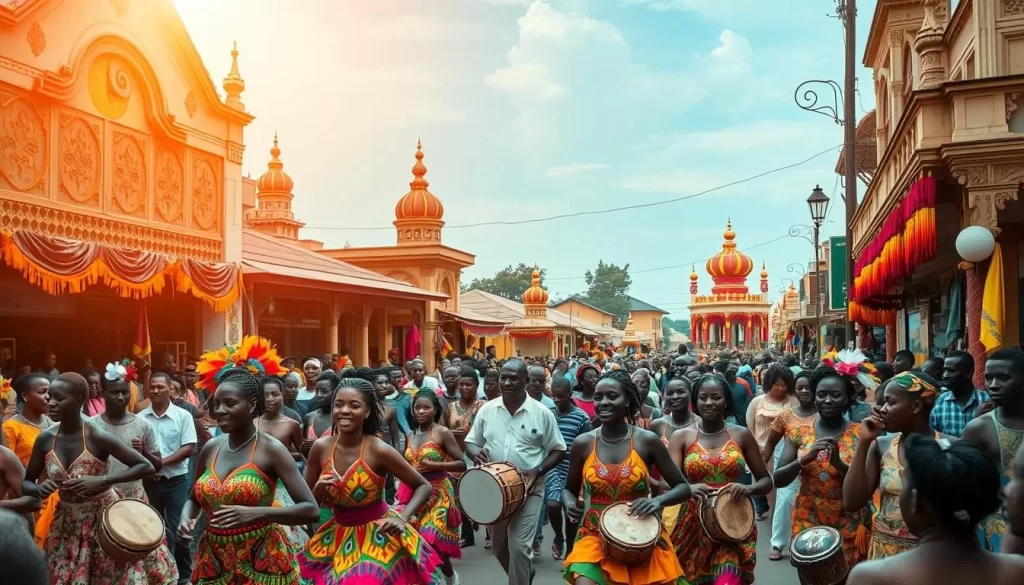
For a smooth experience, consider travel guides and local tourism offices for the latest information. Practical tips include sun protection, respecting local customs, and modest dressing. With these guides and a bit of planning, you’re set to enjoy the rich cultural tapestry that Togo’s festivals have to offer.
Traditional Harvest and Agricultural Festivals
The traditional harvest and agricultural festivals in Togo are a testament to the country’s deep-rooted cultural practices. These festivals not only celebrate the agricultural bounty but also serve as a connection to the country’s rich history and cultural heritage.
Gbagba Festival in Agou
The Gbagba Festival in Agou is a significant event that commemorates the agricultural cycle and the community’s dependence on the land. Held annually, this festival is a time of celebration, reflection, and gratitude for the harvest. You can experience the rich cultural heritage of Togo by participating in this vibrant festival.
Hogbeza Festival of Yoto
The Hogbeza Festival of Yoto is a historic celebration of the Ewe people, typically held every third Saturday in August. This festival is a commemoration of the history and migration of the Ewe people, connecting present generations to their ancestors. You are invited to witness the traditional ceremonies, elaborate processions, and the central role of music in the festival, which creates a sense of place and belonging among community members year after year.
The festival features traditional ceremonies where elders make offerings to ancestral spirits to ensure continued prosperity. Visitors are welcomed to observe most aspects of the festival, though some sacred rituals may be reserved for community members only. This celebration marks the end of the agricultural cycle and functions as both a religious feast and a harvest celebration.
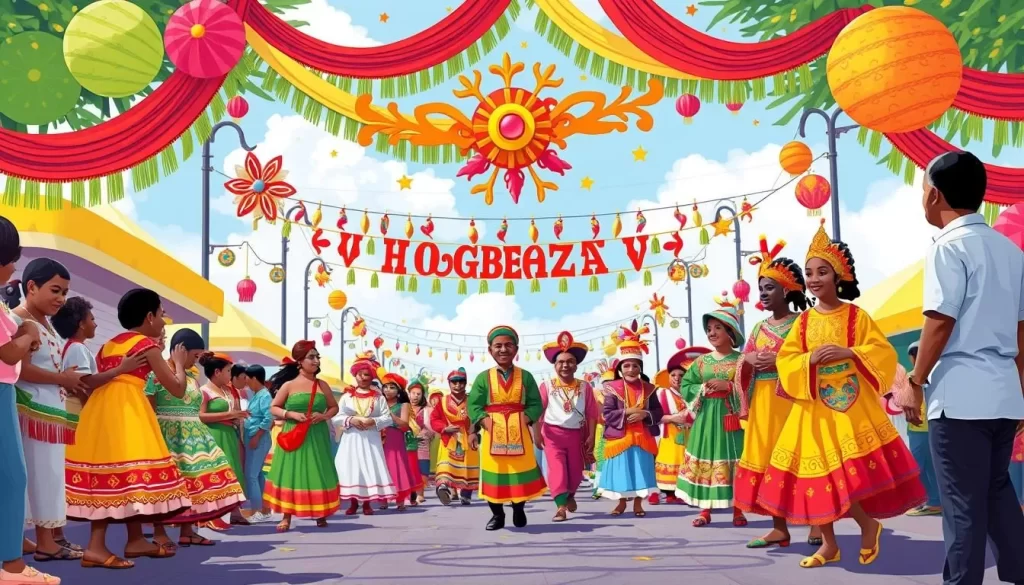
Historical and Cultural Celebration Festivals
Togo’s historical and cultural celebration festivals offer a unique glimpse into the country’s traditions. These festivals are a vibrant representation of the country’s rich cultural heritage, showcasing its history, customs, and values.
Agbogbo-Za Festival in Notsé
The Agbogbo-Za Festival in Notsé is a significant cultural event that highlights the historical and cultural importance of the Notsé community. This festival is a celebration of the city’s heritage and features traditional dance performances and rituals.
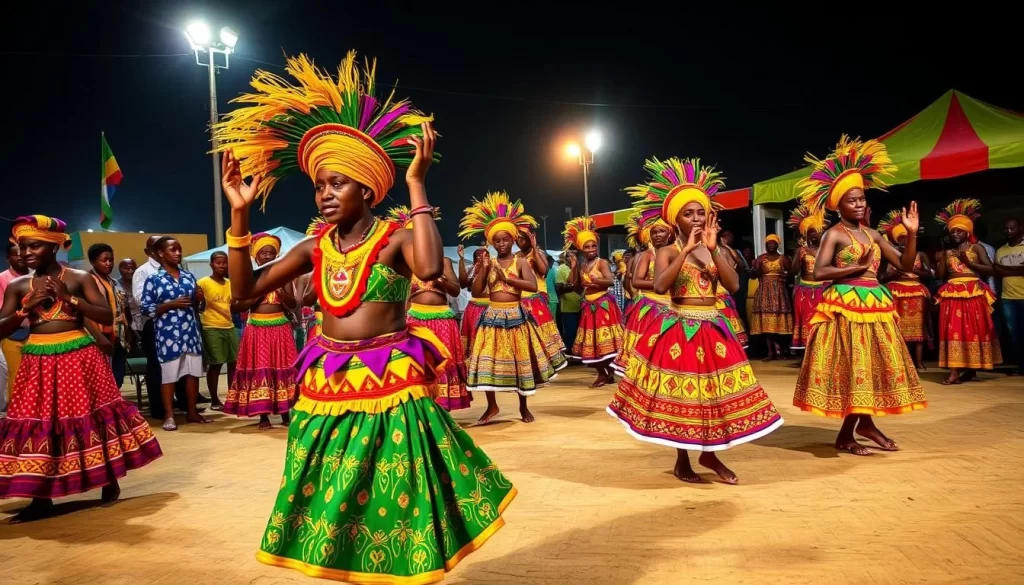
Epe-Ekpe Festival in Aneho
The Epe-Ekpe Festival in Aneho is another notable cultural celebration in Togo, taking place over several days. It is characterized by vibrant processions, traditional music, and food prepared according to ancestral recipes.
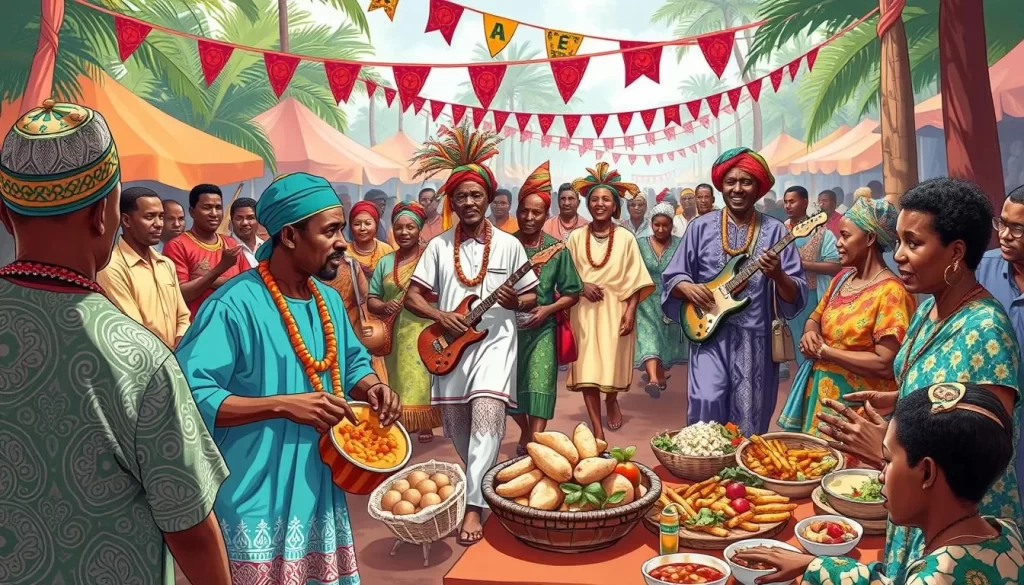
Gadao-Adossa in Sokodé
Gadao-Adossa, or the “Festival of Cutlasses,” is a major celebration of the Tem people in Sokodé. This three-day festival includes ceremonies to thank ancestors for harvests, demonstrations of warrior strength, and celebrations of women’s contributions, accompanied by distinctive dance performances.
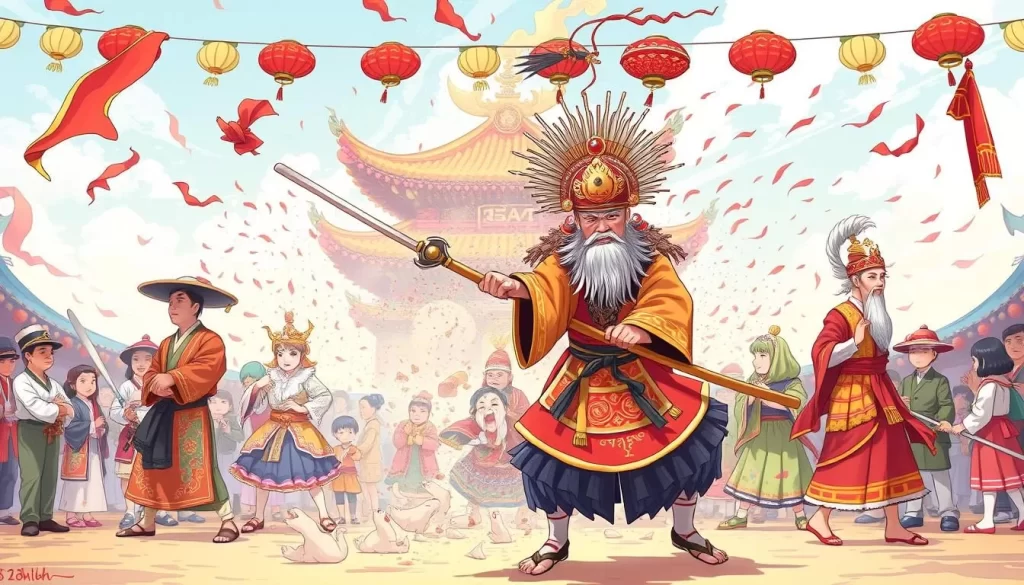
These historical and cultural celebration festivals not only enrich the cultural landscape of Togo but also provide visitors with an immersive experience into the country’s traditions and customs.
Initiation and Spiritual Festivals
As you explore Togo’s vibrant cultural scene, you’ll come across initiation and spiritual festivals that are a testament to the country’s diverse traditions. These festivals are a significant part of Togolese culture, offering a unique experience for visitors.
Evala Wrestling Festival in Kara
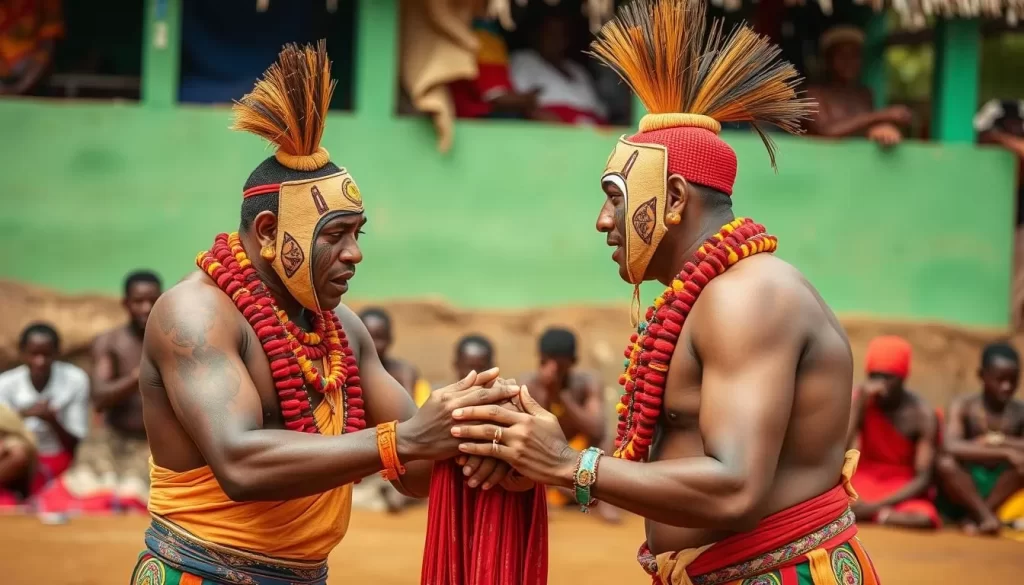
The Evala Wrestling Festival in Kara is a significant initiation ritual that takes place in July. It’s a celebration of strength, skill, and cultural heritage, where young men engage in traditional wrestling matches.
This festival is not only an exciting spectacle but also an important rite of passage for the participants, marking their transition to manhood.
Voodoo Festival in Glidji
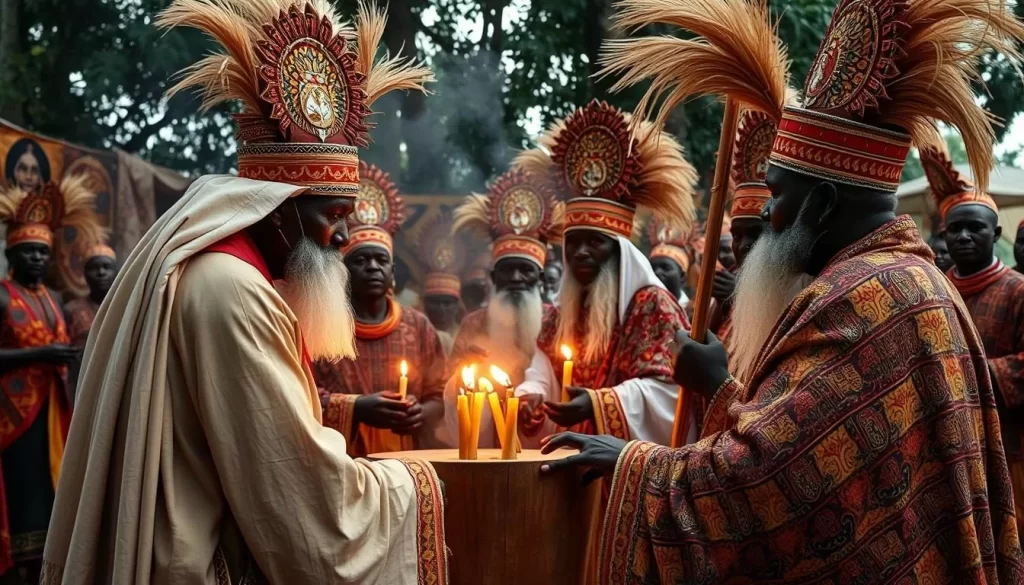
The Voodoo Festival in Glidji takes place every September, celebrating indigenous beliefs and marking the start of the new year for practitioners. Located about 30 miles from Lomé, the festival attracts participants from multiple West African countries where voodoo traditions remain strong.
The highlight of the festival is the sacred stone ceremony, where the color of a revealed stone predicts fortunes for the coming year. This celebration represents the rich mix of spiritual traditions that have survived and evolved in Togo despite colonial influences. You can also enjoy the beautiful beaches near the festival location, making it a perfect blend of cultural experience and relaxation.
Planning Your Festival Experience in Togo
Experiencing Togo’s festivals can be a highlight of your trip, but it requires some knowledge of the local culture and calendar. To make the most of your visit, understanding the country’s seasonal patterns and festival calendar is crucial.
The best time to visit for festival experiences is during the dry season (November to March) when outdoor celebrations are most comfortable. You can combine festivals attendance with visits to Togo’s beautiful beaches for a balanced itinerary.
Using local guides can enhance your experience by providing insights into festival protocols and cultural significance. Additionally, following practical tips such as dressing modestly and bringing local currency can make your visit more enjoyable.
With Togo’s compact size, you can dance your way through multiple festivals in different regions during a single visit, making it a unique cultural experience in this beautiful place.
The above is subject to change.
Check back often to TRAVEL.COM for the latest travel tips and deals.
